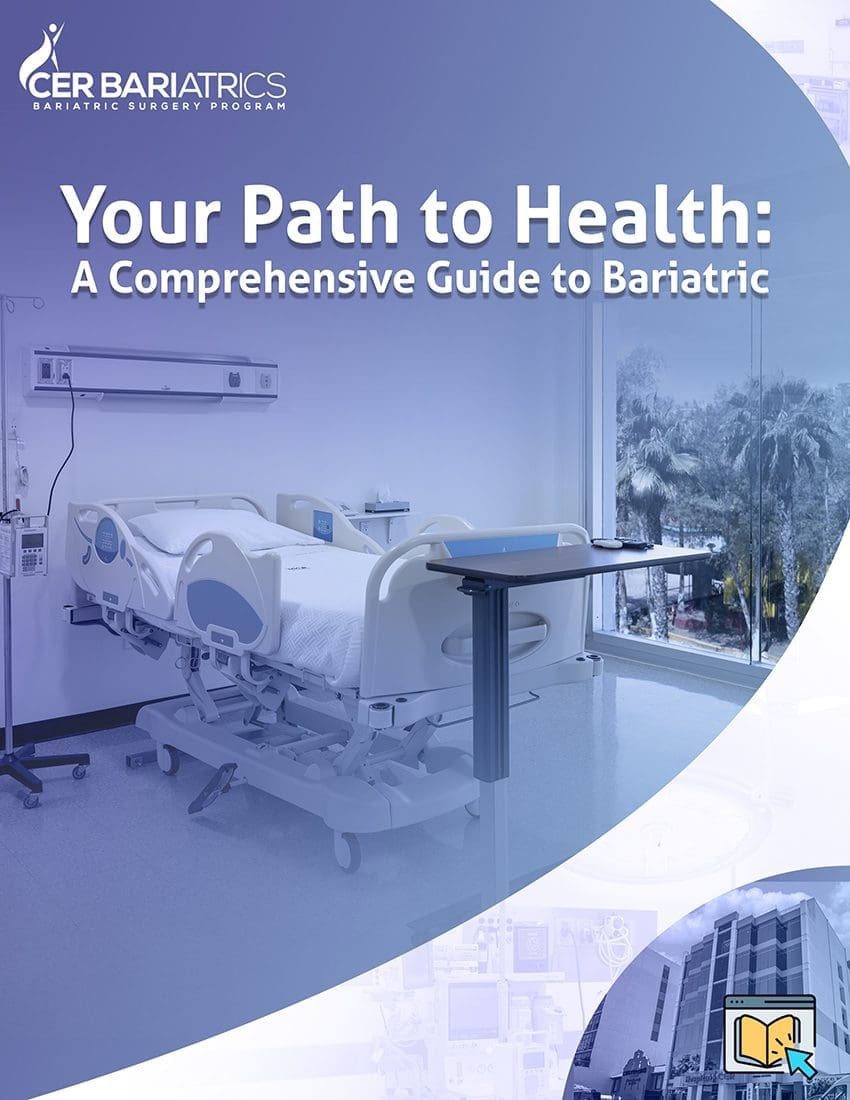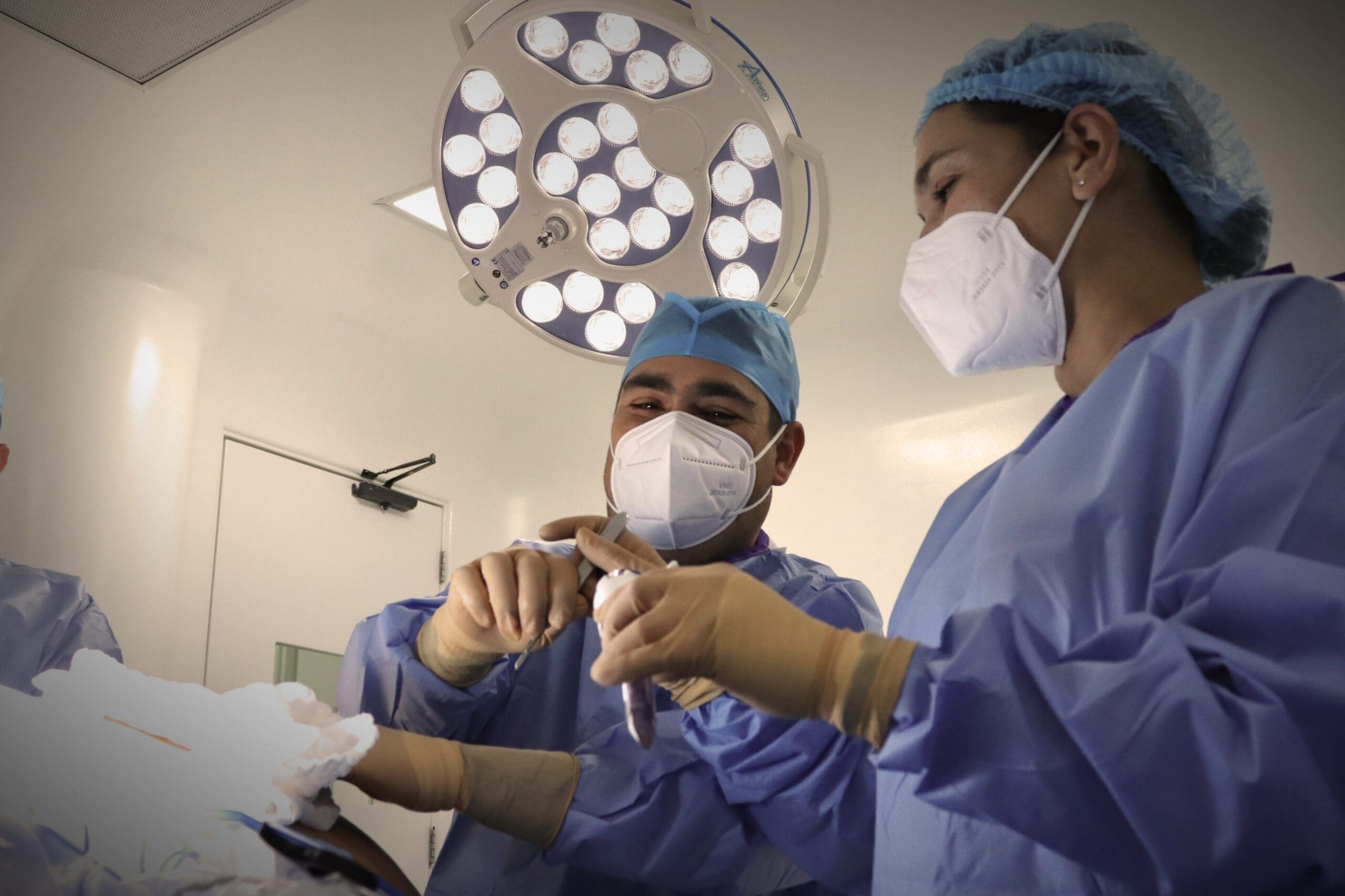Deciding to have weight loss surgery, like gastric bypass, is a significant step towards a healthier life. CER Bariatrics understands the challenges you might face after this surgery and wants to support you through every step of your journey. Many people find it tough to let go of their emotional connection with food, even after such a life-changing surgery. This article aims to help individuals transition to healthier habits and Stop Using Food for Comfort, especially by addressing emotional eating after the surgery.
Understanding Emotional Eating After Gastric Bypass:
- What Is Emotional Eating: Emotional eating means turning to food as a way to handle feelings, rather than simply eating when hungry. It’s like using food as a way to deal with emotions like stress, boredom, sadness, or even happiness.
- Challenges After Gastric Bypass Surgery: While the surgery helps by making it harder to eat large amounts of food, it doesn’t immediately change how we feel about food emotionally. The smaller stomach size might limit what you can eat, but the emotional bond with food might remain.
Strategies to Overcome Emotional Eating:
- Get Support: Building a strong support system is important. Connect with a therapist, join support groups, or talk to trusted friends and family. Having someone to talk to can really help when dealing with emotional eating.
- Mindful Eating: Pay attention while eating. Focus on the tastes and textures of the food. Eating slowly can help you really enjoy your food and can stop you from eating too much.
- Find What Triggers You: Figure out what makes you want to eat emotionally. Once you know, find other things that can help you feel better, like going for a walk, reading, or doing something you enjoy.
- Keep Track of What You Eat: Writing down what you eat and how you feel when you eat can help you see patterns. This can help you change your habits and make healthier choices.
- Use Healthy Ways to Cope: Find other ways to handle your emotions without turning to food. You could try deep breathing, meditation, or talk to someone who can help when you’re feeling stressed or down.
Lifestyle Changes After Gastric Bypass:
- Regular Exercise: Doing regular exercise is important. Check with your doctor for safe exercises after the surgery. Exercise doesn’t just help you lose weight; it can make you feel better and less stressed too.
- Healthy Eating: Follow the food advice given by CER Bariatrics after your surgery. Eating a balanced diet with lots of good nutrients is really important for your health and recovery.
- Keep in Touch with Your Doctor: It’s essential to have regular check-ups and talk to your healthcare team. If you’re having a hard time dealing with emotional eating or anything else after your surgery, it’s important to talk about it.
Setting Goals and Being Patient:
- Be Realistic: It’s important to know that changing your habits takes time. Setting small goals and celebrating your progress, no matter how small, can help.
- Be Kind to Yourself: It’s important to be understanding and patient with yourself during this process. Sometimes, things might not go as planned, but what’s important is to get back on track.
Conclusion:
Creating a new relationship with food after a gastric bypass takes time and effort. CER Bariatrics is here to guide and support you through this journey. Remember, breaking the cycle of emotional eating doesn’t happen overnight, but with determination and the right strategies, it is possible. You’re not alone; CER Bariatrics is here to help you succeed.
Note: Always talk to your healthcare provider or a professional for personal advice regarding care after gastric bypass surgery and your emotional health.
Healthy Eating Habits After Gastric Bypass
- Mindful Food Choices: It’s important to make smart food decisions after a Roux-en-Y gastric bypass. Choose foods that are rich in vitamins and minerals. Opt for lean proteins, fresh fruits, vegetables, and whole grains. These foods provide essential nutrients to support your health and recovery after the surgery.
- Avoid Comfort Foods: Comfort foods often provide a temporary sense of relief but are usually high in calories and low in nutrition. These foods can undo the progress made after the surgery. Try to steer clear of these foods and opt for healthier alternatives that make you feel good in the long run.
- Regulate Blood Sugar: After a gastric bypass, the body might react differently to certain foods. Pay attention to your blood sugar levels. Choose foods that help maintain stable blood sugar, like lean proteins and complex carbohydrates.
- Eating Disorders and Emotional Eating: Some people who’ve had gastric bypass surgery might struggle with eating disorders or emotional eating. If you find yourself eating in response to emotions or feel out of control, seeking professional help from a healthcare provider or a therapist can be really important.
Practicing Mindful Eating After Gastric Bypass Surgery:
- Eating Slowly: Eating too quickly can make you uncomfortable after gastric bypass surgery. Eat slowly, take small bites, and chew your food well. This helps prevent discomfort and ensures you don’t eat more than your body can handle.
- Paying Attention to Feelings: Being mindful of your emotions when eating is essential. If you find yourself turning to food when feeling stressed or upset, try taking deep breaths or finding alternative ways to manage your feelings.
- Practice Mindful Eating: Focus on your meal when eating. Try to eliminate distractions and pay attention to the flavors, textures, and the act of eating itself. This helps you enjoy your food more and prevents overeating.
- Physical Activity for Health: Regular physical activity is crucial after gastric bypass surgery. It not only aids in weight loss but also helps manage stress and keeps your body healthy.
Conclusion:
Adapting to new eating habits after a Roux-en-Y gastric bypass is a journey that takes time. CER Bariatrics is committed to supporting you every step of the way. Understanding your body’s response to food, practicing mindful eating, and making healthier food choices are vital for success after the surgery. Remember, it’s normal to face challenges, but with the right guidance and perseverance, you can achieve a healthier and happier lifestyle. CER Bariatrics is here to assist you in your post-surgery journey towards a better quality of life.
Note: Always consult with your healthcare provider or a professional for personalized advice regarding post-gastric bypass care and emotional health.
Frequently Asked Questions (FAQs)
Q: How can I ensure proper health care after gastric bypass surgery?
A: After gastric bypass surgery, maintaining proper health care involves regular check-ups with your healthcare team. They will monitor your progress, provide guidance on nutrition, and address any concerns that arise during your post-surgery journey. Following their advice regarding dietary changes, activity levels, and emotional well-being is crucial for your overall health.
- What strategies can help me feel full after gastric bypass surgery?
A: Feeling full after the surgery can take time to adjust. Practicing mindful eating, which involves chewing food slowly and thoroughly, can help you recognize the feeling of fullness. Portion control and choosing nutrient-dense foods that fill you up without overeating are key. Additionally, recognizing your body’s signals when it’s had enough food can prevent discomfort and aid in managing weight after the surgery.
Feeling stuck?
- Check Your Bariatric Surgery Eligibility Now!
Ready for a Healthier You? Review Your Bariatric Surgery Case Today!
Take the first step towards a healthier, happier you by reviewing your bariatric surgery case. Fill out our quick and easy Surgical Eligibility Form to see if you’re a candidate for life-changing weight loss surgery. Your journey to better health starts here!
Related Post
Learn how to kickstart your weight loss journey










